5月15日,尼泊尔农业部部长助理Ram Krishna Shrestha、联合国粮农组织亚洲及太平洋区域办事处创新专家董乐访问中国农业大学工学院。双方在742会议室举行座谈会。工学院院长宋正河教授,保护性耕作技术与装备团队负责人李洪文教授,副院长王庆杰教授接待了客人。
On May 15, Ram Krishna Shrestha, Joint Secretary for Ministry of Agriculture and Livestock Development (MoALD), Government of Nepal, and Le Dong, Innovation Specialist (Agrobiodiversity and Food Systems) at FAO Regional Office for Asia and Pacific, based in Bangkok, Thailand, visited College of Engineering at China Agricultural University. A discussion session was held in Meeting Room 742. Professor Zhenghe Song, Dean of the College of Engineering, Professor Hongwen Li, Head of the Conservation Tillage Technology and Equipment Team, and Professor Qingjie Wang, Deputy Dean of the College of Engineering, warmly received the guests.
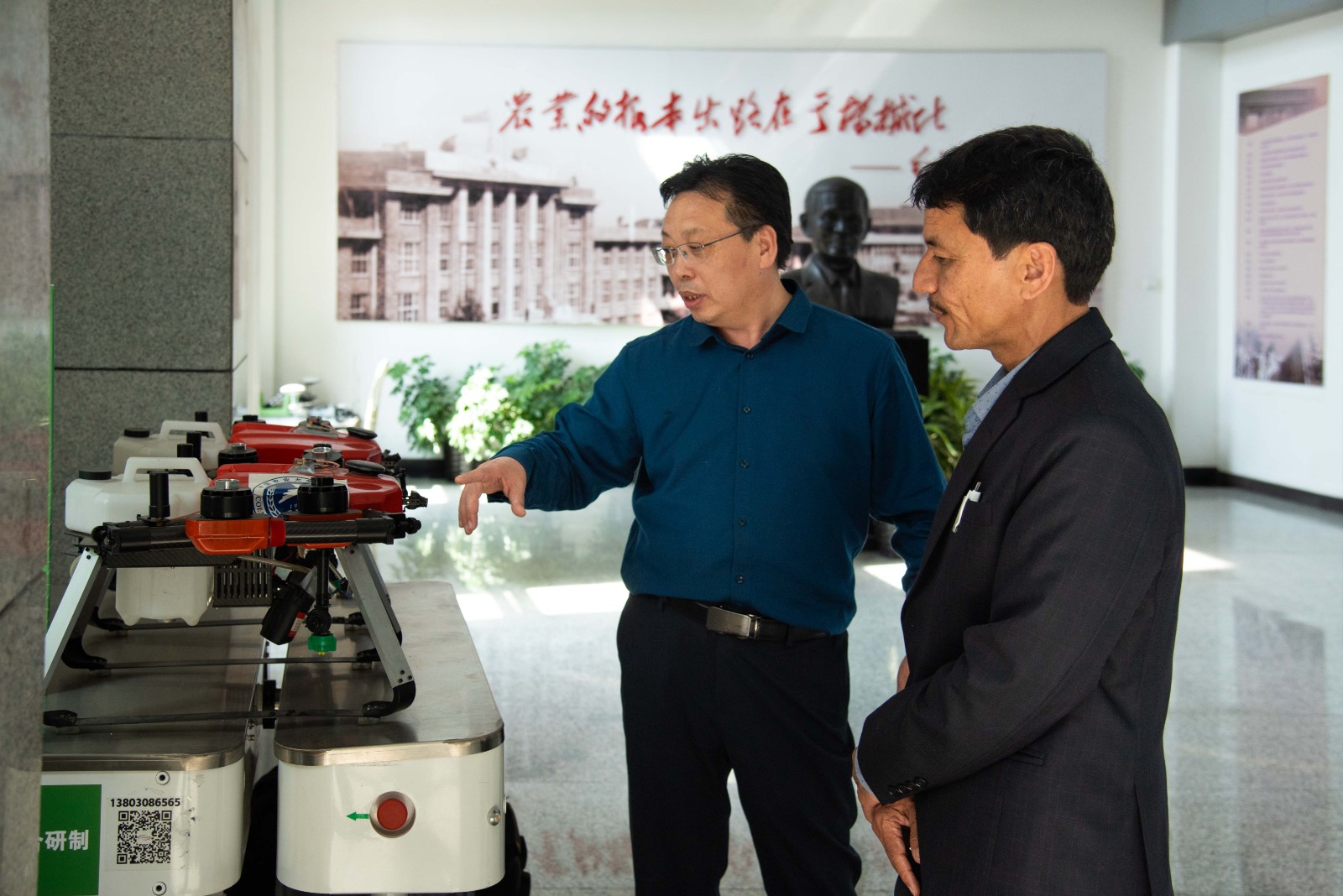
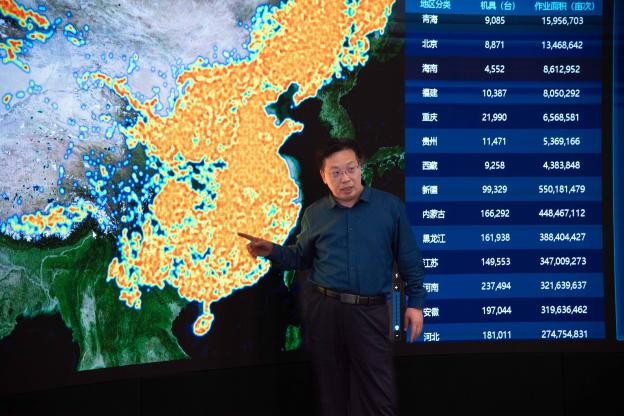
宋正河代表学院热情欢迎了客人的到来。他表示,工学院始终保持着开放的态度,热忱欢迎来自世界各地的朋友们来访、参观、探讨合作事宜。目前,学院已在巴西和泰国建立了科技小院,深受当地农民的欢迎,并且在人才培养和解决当地实际问题方面取得了显著成效。希望工学院能与尼泊尔有关地区建立合作,共建科技小院,实现人员联合培养和机械共享。随后,宋正河向来访客人介绍了全国农机购置与应用补贴大数据平台及智能农机装备数字孪生系统。双方就农机应用、数据管理及应用、农业生产效能提升等内容展开讨论。
Zhenghe Song warmly welcomed the guests on behalf of the college. He stated that the College of Engineering has always maintained an open attitude and warmly welcomes friends from around the world to visit, tour, and discuss cooperation matters. At present, the college has established science and technology backyards in Brazil and Thailand, which have been well-received by local farmers and have achieved remarkable results in talent cultivation and solving local practical problems. It is hoped that the college can establish cooperation with relevant regions in Nepal, jointly build science and technology backyards, and achieve joint personnel training and machinery sharing. Subsequently, Zhenghe Song introduced the national big data platform for agricultural machinery purchase and application subsidies and the digital twin system for intelligent agricultural machinery and equipment to the visiting guests. The two sides discussed content such as agricultural machinery application, data management and application, and improvement of agricultural production efficiency.
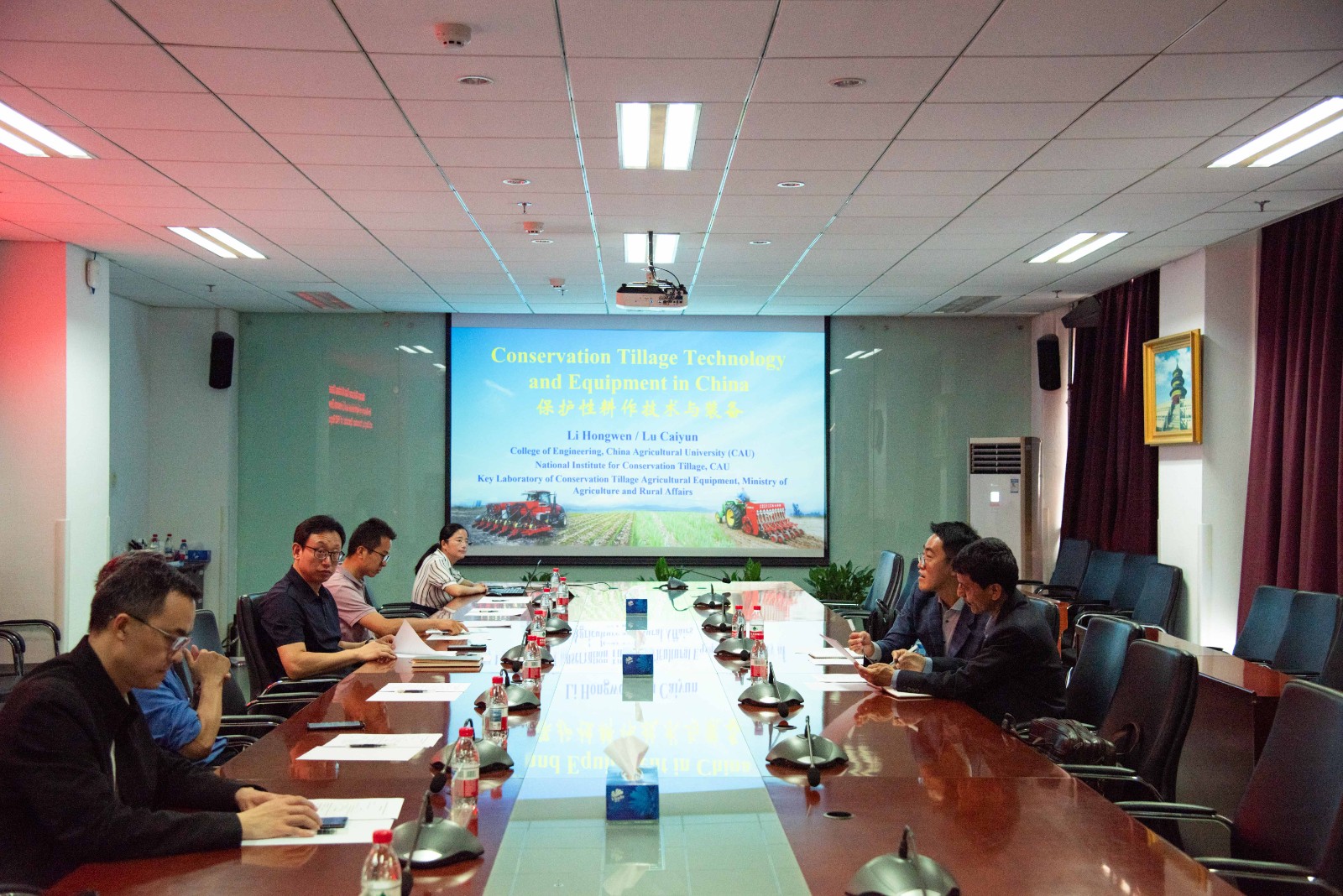
Ram Krishna Shrestha对工学院的接待表示感谢。他指出,尼泊尔正面临着耕地面积有限、农业机械化水平不足等挑战。此次来访中国农业大学他旨在学习如何通过保护性耕作技术,更高效且可持续地利用有限的土地资源,也希望能与中国农业大学工学院开展合作,探索适合尼泊尔的农机机械,并且借鉴中国的农业机械化经验。
Ram Krishna Shrestha expressed his gratitude for the warm reception by the College of Engineering. He noted that Nepal is currently facing challenges such as limited arable land and a low level of agricultural mechanization. The purpose of his visit to China Agricultural University is to learn how to utilize limited land resources more efficiently and sustainably through conservation tillage technologies. He also expressed the hope to establish cooperation with the College of Engineering to explore agricultural machinery suitable for Nepal and to draw on China’s experience in agricultural mechanization.
李洪文教授指出,基于尼泊尔的国情,强化保护性耕作的实施并持续发展农业机械化是确保土地可持续利用和提高利用效率的关键,这将显著改善粮食生产中存在的诸多问题。工学院很愿意与尼泊尔分享小型及手持型农机具。
Professor Hongwen Li emphasized that, given Nepal’s national conditions, strengthening the implementation of conservation tillage and continuously developing agricultural mechanization are key to ensuring sustainable land use and improving land utilization efficiency. This approach will significantly help address many existing issues in food production. He added that the College of Engineering is very willing to share small-scale and hand-held agricultural machinery with Nepal.
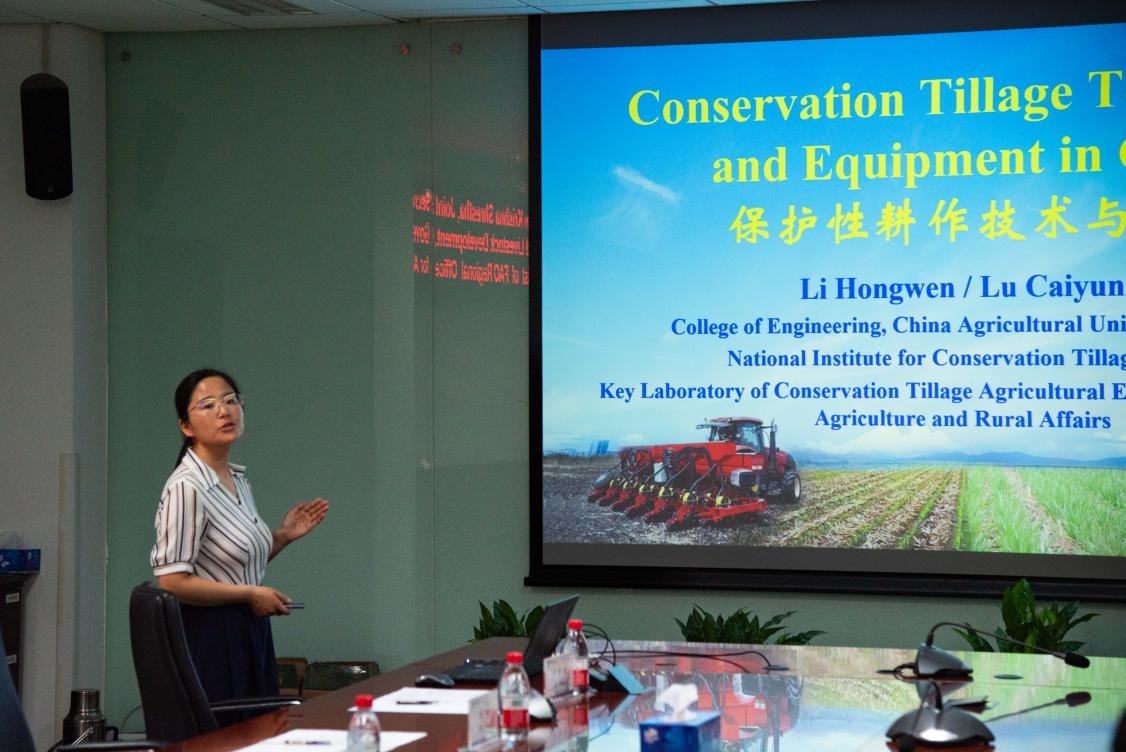
卢彩云副教授从科技成果、社会效益、国际交流与影响力等方面,向客人介绍了团队30余年的发展历程。
Associate Professor Caiyun Lu introduced the development of the team over the past 30 years to the guests in terms of scientific and technological achievements, social benefits, international exchanges and influence, etc.
双方还围绕在尼泊尔建立科技小院、进行联合培养等事项展开初步讨论。
The two sides also held preliminary discussions on establishing science and technology backyard programs in Nepal and carrying out joint training initiatives.
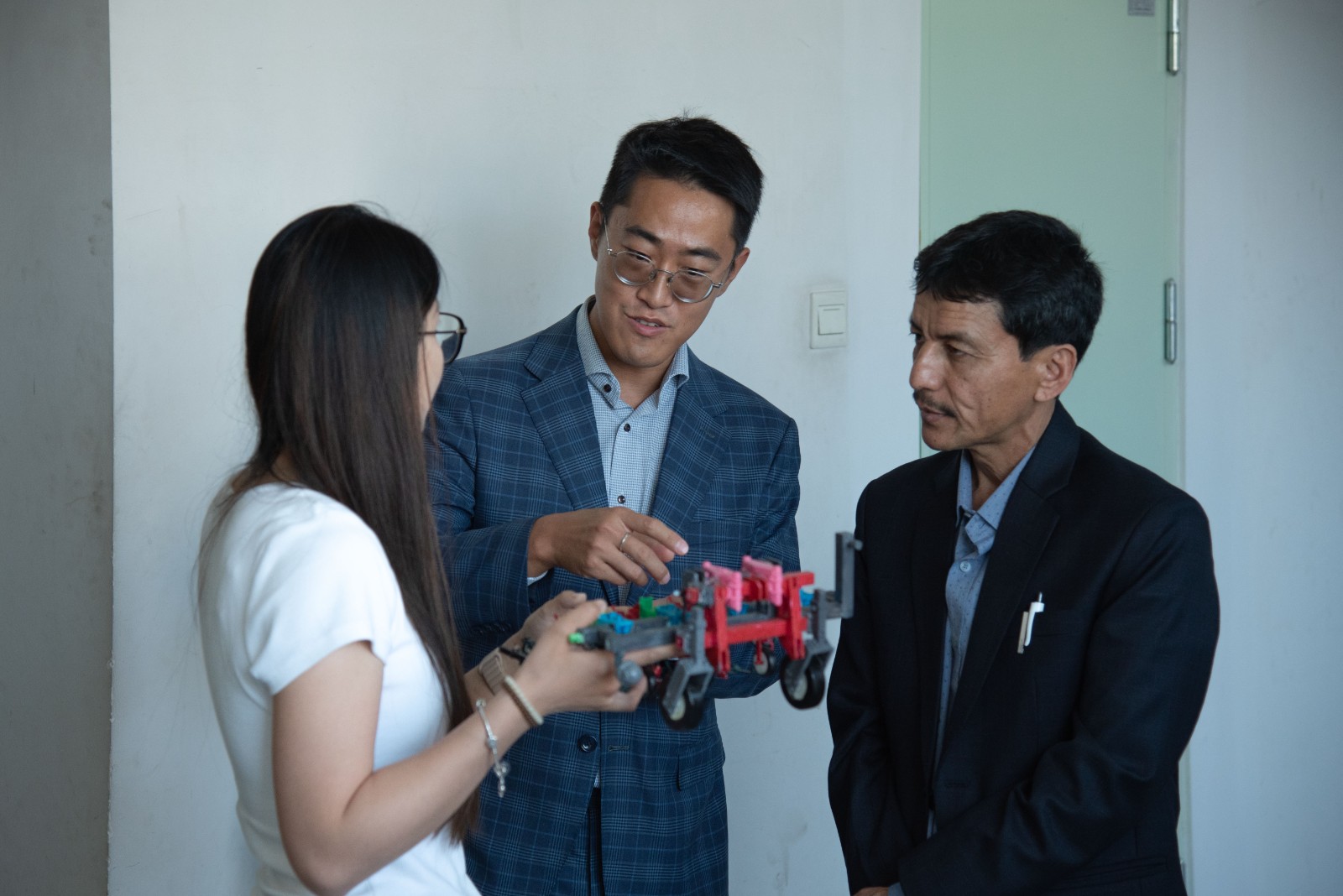
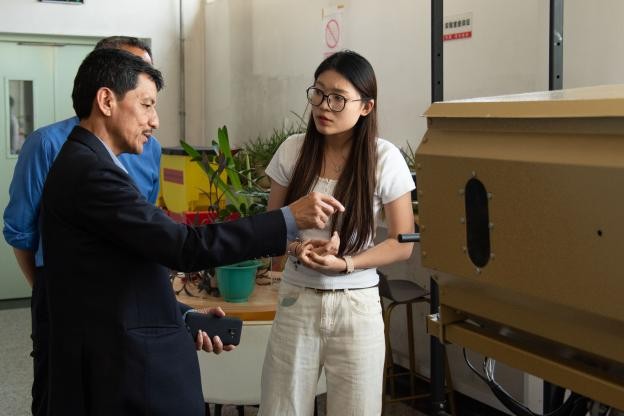
座谈开始前,客人还参观了保护性耕作实验室。团队成员为客人详细介绍了团队研发的12行中耕培土施肥除草一体机、智能电驱精量播种机及早期研发的Li Seeder播种机具的结构、工作原理与功能。代表团对机具的功能、智能化控制性能、高效作业模式等表现出浓厚兴趣,并就其在干旱地区的适用性展开讨论。
Before the meeting, the guests also visited the conservation tillage laboratory. The team members introduced in detail the structure, working principle and functions of the 12-row soil cultivator, fertiliser and weeder, intelligent electric drive precision seeder and Li Seeder seeding machine developed by the team. The delegation showed great interest in the functions, intelligent control performance and efficient operation mode of the implements and discussed their applicability in arid areas.
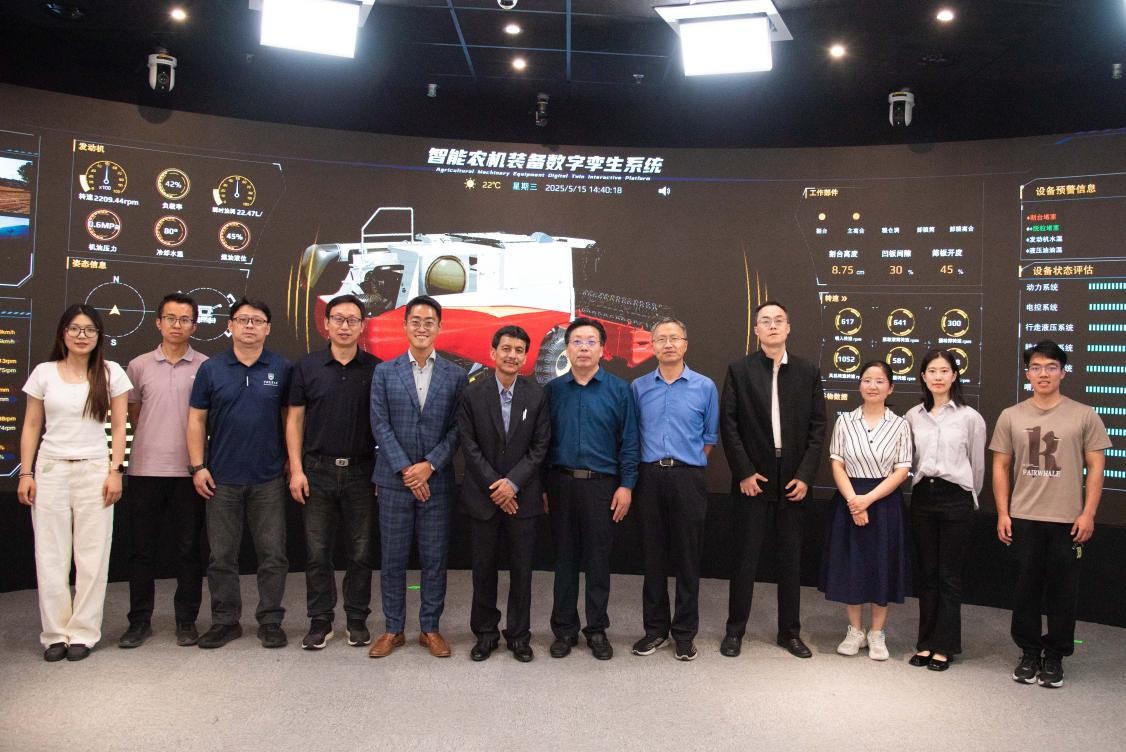
工学院何进教授、王超副教授、办公室主任刘冉、外事秘书姜斯瑞,及保护性耕作团队的多名研究生参加上述活动。
Professor Jin He, Associate Professor Chao Wang, Office Director Ran Liu, Staff for international cooperation and communication Sirui Jiang, as well as several graduate students from the Conservation Tillage Technology and Equipment Team, also participated in the event.